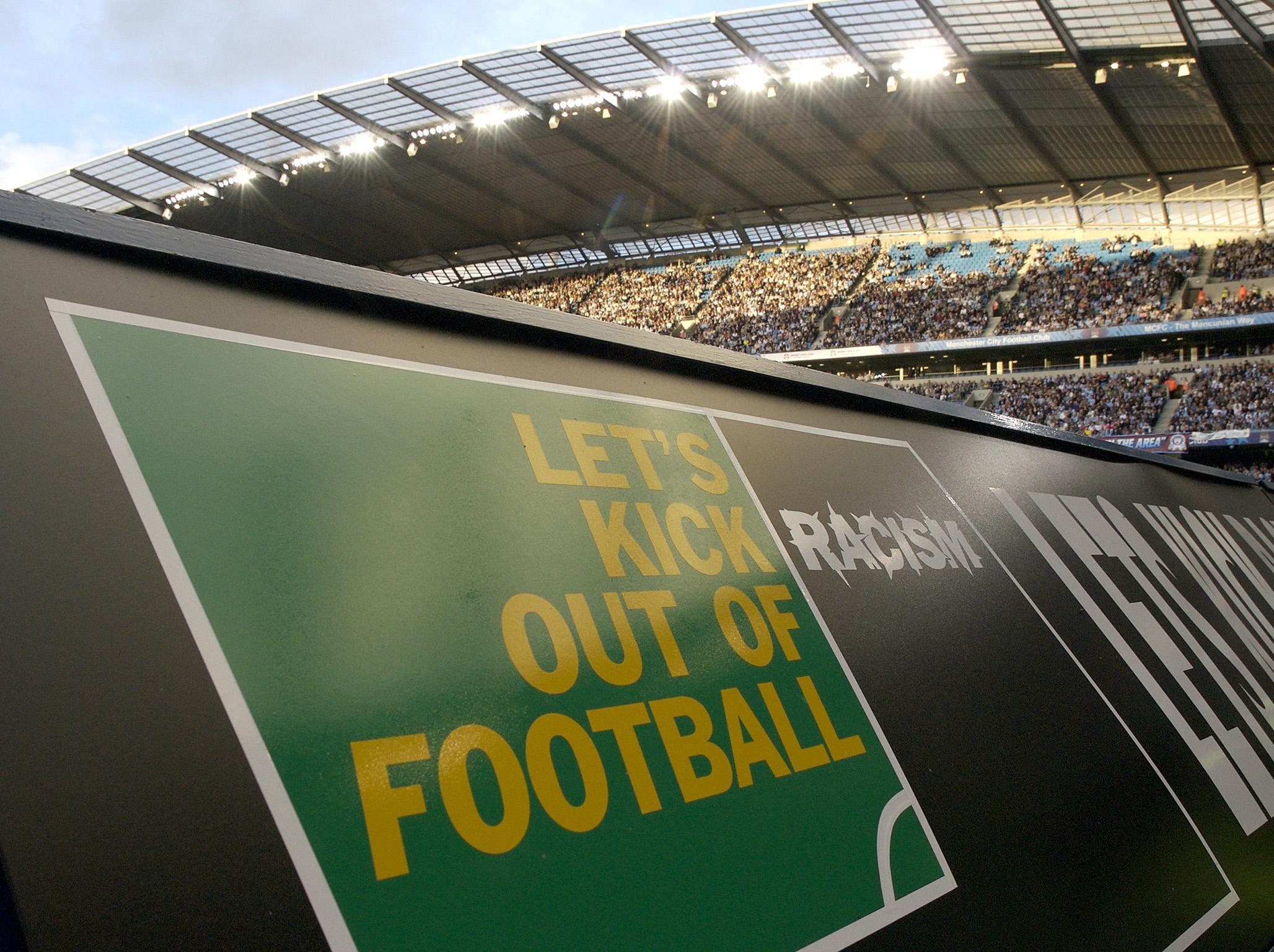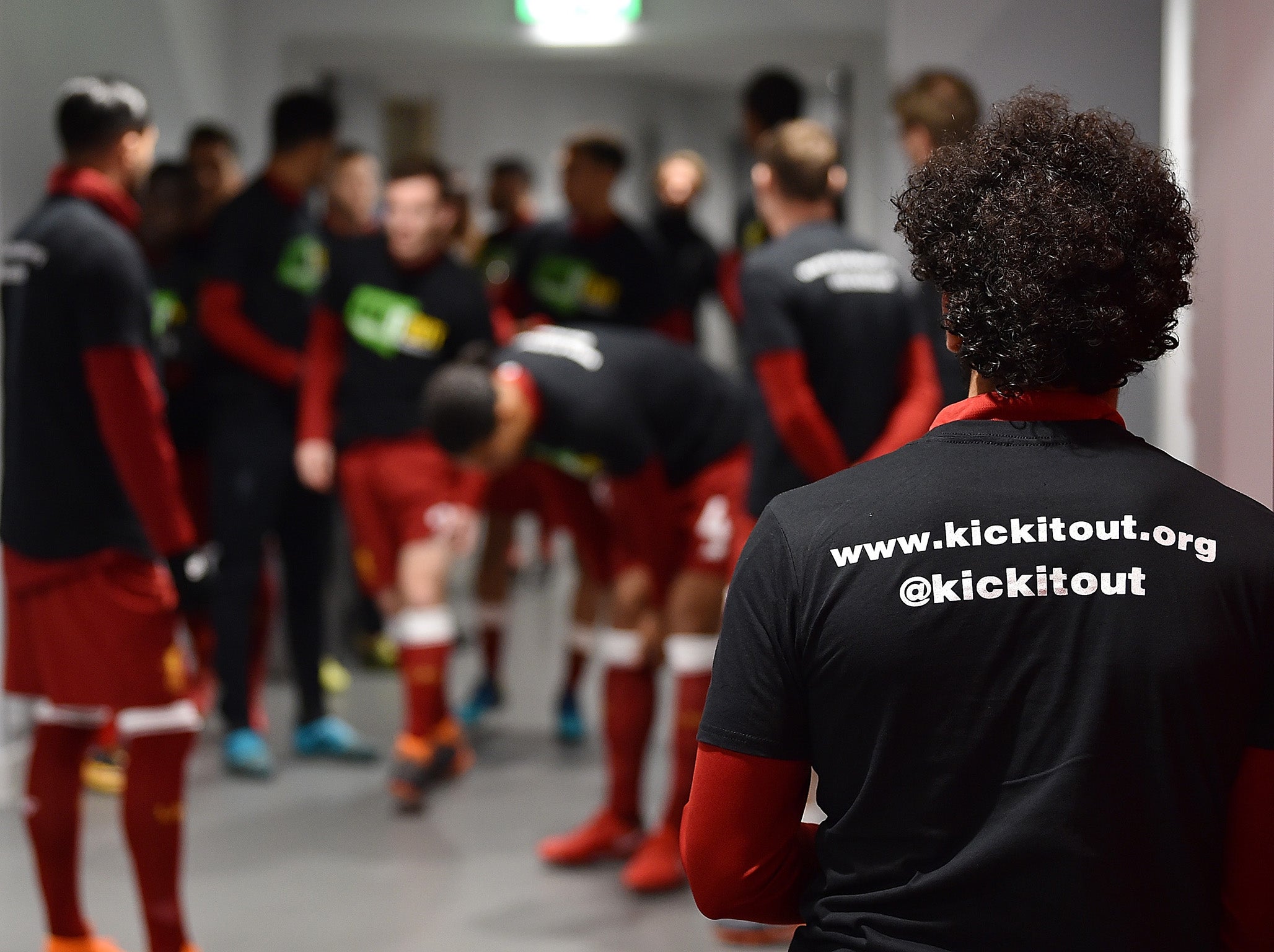Football must face up to an indisputable truth: black managers do not get the same chances as white managers
The Rooney Rule might help to address the lack of representation of BAME managers in English football but we must first face society's inherent racism

Your support helps us to tell the story
From reproductive rights to climate change to Big Tech, The Independent is on the ground when the story is developing. Whether it's investigating the financials of Elon Musk's pro-Trump PAC or producing our latest documentary, 'The A Word', which shines a light on the American women fighting for reproductive rights, we know how important it is to parse out the facts from the messaging.
At such a critical moment in US history, we need reporters on the ground. Your donation allows us to keep sending journalists to speak to both sides of the story.
The Independent is trusted by Americans across the entire political spectrum. And unlike many other quality news outlets, we choose not to lock Americans out of our reporting and analysis with paywalls. We believe quality journalism should be available to everyone, paid for by those who can afford it.
Your support makes all the difference.This isn’t really about individuals, so we’ll leave names out of this. When we’re talking about issues as big as race and discrimination, case studies often prove a handy distraction for those who would rather fixate on the small details than the bigger picture. Several white English ex-footballers have been given their first managerial jobs in recent weeks, including one this week, but this isn’t really about any of them either. So first of all, let’s just concentrate on the data.
Since 1990, one in four – just under 25 per cent – of retired England international footballers have been black or from an ethnic minority background (BAME). But of those ex-players who have subsequently gone into a management job, that drops to just one in seven. We’re defining a management job as a club in one of the top five divisions in England, or a big-five league or international side in Europe.
As a white ex-England player, you are twice as likely to end up in a managerial job as your black counterpart. Since 1990, just five black ex-England players have gone into management, under the definition listed above. You’d probably struggle to name all of them, given that only one of them is still in a job and only one of them made it as far as the Premier League (where he lasted six months).
Oh, and you know what else? The gap is widening. Since 2000, the proportion of black footballers playing for England has risen, but while 25 per cent of white players have been given a managerial job since retirement, that drops to just 10 per cent for black players. And if you are an aspiring black English manager with a stellar playing career behind you, you’d better get a move on: no black England footballer has ever been offered his first managerial job more than a year after retirement.
At a wider level, just 7 per cent of the current Premier League and Football League managers, and 2.6 per cent of all the permanent managers in Premier League history, are BAME. And according to the League Managers’ Association, almost two thirds of all the BAME managers in Football League history never got a second job.
That’s the data. Of course, you may well choose to dispute it, disregard it, offer complicating caveats or contradictory anecdotes, but all you would be doing is arguing against my evidence with your lack of evidence. All the data indicates that black managers do not get the same chances in the game as white managers. Again, for the avoidance of doubt: all the data indicates that black managers do not get the same chances in the game as white managers.
Unless we collectively accept that as a fact, we’re nowhere.

So what now? Even many of those who agree on the problem of a lack of black representation in management are not convinced by the efficacy of the Rooney Rule, which requires at least one BAME candidate to be interviewed for every coaching role, and which is implemented by the FA but not yet by the Premier League, and only on a voluntary basis by the EFL. This should scarcely bear repeating, but the Rooney Rule does not stop the best candidate from getting the job. It does not deny anybody an interview who wasn’t already getting an interview in the first place. But there are those – of all races – who just don’t like the feel of it. That’s fine.
At the very least, however, we need clubs to offer greater transparency to their recruitment processes. Too many jobs are still being given out informally, on the quiet, without formalities, and thus intrinsically weighted in favour of those already possessing a rich range of contacts in the game. This, by the way, is a problem in many sectors beyond football, including the media.
We also need to be more cognisant of our biases as a society. The role of the manager has never just been about coaching, academic qualifications, a checklist of boxes to tick. It’s a leadership role as much as a technical one, and so it has been given on the strength of personality, character and likeability as often as anything else. Individually, you could probably make a decent case for every single white manager appointed to a managerial role in this country. It’s only when you collate them into a broader tableau that a pattern of subconscious discrimination becomes evident.
And so it’s relevant that Ucas data shows that ethnic minority students are less likely than white students to be offered university places with the same predicted A-Level grades. It’s relevant that a 2009 study found that job applicants with a “white-sounding” name like Andrew Clarke were 74 per cent more likely to get an interview than those with “black-sounding” names like Anthony Olukayode. It’s relevant that black men are three times more likely than white men to be arrested. Are we racists as individuals? Probably not. Are we racist as a society? Absolutely, 100 per cent yes.
There will be those out there – mostly white people – who will despise this article and despise the arguments made in it. Who will despise the way that white managers are reduced to their ethnicity, when it is exactly what non-white people have been experiencing their entire lives. Who would rather believe anything – that the data is flawed, that black players don’t want to become managers, that black coaches are intrinsically less capable – than that they are complicit in a rigged system, a society that still struggles to reconcile itself with the idea of black people as leaders rather than followers.
There will be those who will lament the fact that we are introducing race into an issue where race is no issue, who will ignore the data in favour of their own intuition, which tells them that everything is fine and these people are just making trouble. They will tell themselves that they are the real victims, and we the real persecutors. They will decry us for playing the race card. But you don’t need to play the race card if you’re already winning the game.
Join our commenting forum
Join thought-provoking conversations, follow other Independent readers and see their replies
Comments